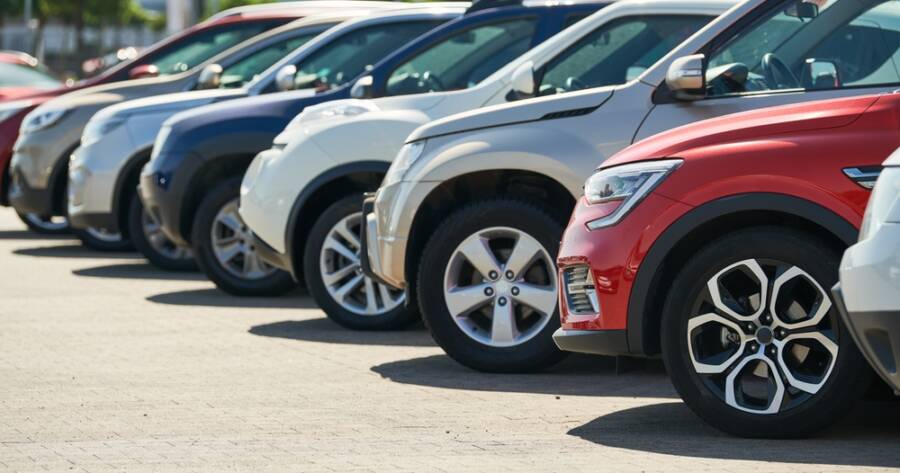If you’re looking for a great deal on a used car, repossessed cars might be a hidden gem. These vehicles are often sold at a much lower price than their market value, making them an attractive option for buyers on a budget. However, buying a repossessed car comes with its own set of challenges and considerations. Let’s go through the process, helping you find a good deal without any surprises.
What Are Repossessed Cars?
Repossessed cars are vehicles that have been taken back by the lender after the original owner failed to make timely payments. When someone borrows money to buy a car, the lender holds a lien on the vehicle. If the borrower misses too many payments, the lender has the right to repossess the car. Once the car is repossessed, the lender usually sells it at auction or through a dealership to recover the outstanding loan balance.
The main reason to seek out repossessed cars is the potential savings. These cars may have been well-maintained by their original owners, but sometimes they show signs of neglect or wear. It’s important to check each vehicle carefully to assess its condition before buying.
How to Find Repossessed Cars
Repossessed cars can be found in a variety of places. Some of the most common sources include:
- Bank and credit union auctions: Many financial institutions hold auctions to sell repossessed vehicles. You can often find these auctions listed online or in your local newspaper.
- Online auction sites: Websites like eBay Motors, RepoFinder, and Auto Auction Mall specialize in listing repossessed cars for sale. You can browse a wide selection from the comfort of your home.
- Car dealerships: Some dealerships specialize in selling repossessed cars. These vehicles are often sold at a discount, but they may come with a warranty or additional services.
- Government auctions: The government sometimes auctions off repossessed vehicles from law enforcement and other agencies. These vehicles are often well-maintained and can be a good deal.
What to Look for When Buying a Repossessed Car
While repossessed cars can offer great deals, it’s important to take extra steps to ensure you’re purchasing a reliable vehicle. First, obtain a vehicle history report using the car’s VIN number. This report will inform you if the car has been involved in accidents or experienced other significant issues.
Next, if possible, inspect the car in person or hire a mechanic to assess its condition, looking for signs of damage, wear and tear, or mechanical problems. Always take the car for a test drive to get a sense of its performance and identify any noticeable issues.
Finally, determine the market value of the car using tools like Kelley Blue Book or Edmunds to compare prices and ensure you’re getting a good deal.
Pros and Cons of Buying Repossessed Cars
Buying a repossessed car comes with both benefits and risks. Here are some of the main pros and cons to consider:
Pros:
- Lower prices: Repossessed cars are often sold at a fraction of their original price, meaning you could save a significant amount of money.
- Opportunity to buy a high-quality vehicle: Some repossessed cars are nearly new, offering great value for the price.
- Variety of options: Whether you’re looking for a luxury car, a family sedan, or a compact vehicle, repossession auctions have a wide variety of choices.
Cons:
- No warranty: Most repossessed cars are sold “as is,” meaning there is no warranty or guarantee.
- Potential for hidden problems: Some repossessed cars may have mechanical or cosmetic issues that the previous owner didn’t disclose.
- Bidding wars: At auctions, you may end up paying more than you intended due to competitive bidding.
Financing Options for Repossessed Cars
Although repossessed cars are typically available at lower prices, you may still need financing to purchase one. There are several options available for securing a loan. Many banks and credit unions offer loans for used cars, including repossessed ones, and if you have good credit, you may qualify for a low-interest rate.
Some dealerships that specialize in repossessed cars also provide in-house financing, though these loans might come with higher interest rates. If you prefer not to deal with a dealership or lender, another option is taking out a personal loan to cover the cost of the car.
Seize the Opportunity!
Repossessed cars can be a fantastic way to score a great deal on a used vehicle, but they require careful consideration. By taking the time to study, inspect, and test drive the car, you can minimize risks and make an informed purchase.
Remember to compare prices, check the car’s history, and explore your financing options. With the right approach, buying a repossessed car can be a rewarding experience, saving you money while still getting a reliable vehicle.

